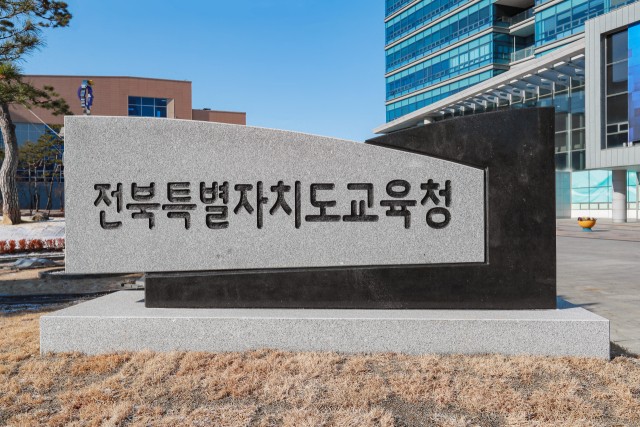
Why Understanding Multicultural Growth in Korea Matters to Foreigners
Hello, dear readers! If you're living in Korea or thinking about moving here, it's essential to keep an eye on the evolving cultural landscape. Recently, the increase in multicultural students—especially in rural areas—offers vital insights into the changing dynamics of education and community in Korea.
The recent trend shows that multicultural students now make up a growing percentage of the student population, particularly in rural regions. This development has substantial implications for foreigners, as it could affect everything from community support systems to local policies on education and integration.
🌏 What's happening in Korea? (Quick overview)
A report from Jeonbuk Province indicates that multicultural students now represent over 17% of the student body in some rural areas. The government has introduced tailored Korean language classes to help these students adapt and thrive in their educational environments. In fact, from 2022 to 2024, the number of multicultural students has steadily risen, showing a commitment to inclusion and support.
💡 Why this matters for foreigners? (Impact analysis)
For expatriates living in Korea, this rise in multiculturalism means a more diverse community where different languages and cultures are acknowledged. You may find renewed opportunities for collaboration, employment, or even social engagement. It's a boon for foreigners who are passionate about intercultural dialogue or those considering long-term residency in Korea.
📌 How to take advantage of this? (Step-by-step guide, if applicable)
If you're interested in helping multicultural students or want to enhance your Korean language skills, consider volunteering or participating in local events that promote cultural exchange. Here’s how you can get involved:
- Research local NGOs: Find organizations that support multicultural education.
- Join language exchange programs: Better your Korean and help others while doing so.
- Attend community events: Participate in festivals and activities that celebrate diversity.
🇰🇷 Understanding Korea's system (Cultural & bureaucratic insights)
The education system in Korea is evolving to accommodate the needs of multicultural students, affording them greater opportunities while ensuring they do not face significant barriers. Understanding these changes may help foreign residents better navigate the system and offer help where needed. This adaptation reflects broader societal acceptance that can lead to more inclusivity in various sectors.
🌟 Tips for foreigners living in Korea
As the landscape of Korean society shifts, keeping an open mind is essential. Here are a few tips:
- Learn the language: Your efforts to speak Korean will go a long way in building relationships.
- Engage in cultural activities: Attend local festivals to experience the rich tapestry of Korean culture.
- Network with expats: Join expat groups to share experiences and find support.
🔮 What's next? (Future trends & additional insights)
Looking ahead, the trend of increasing multicultural students is likely to continue. The success of programs like “visiting Korean language education” suggests a commitment to fostering integration. We can expect ongoing support from local governments and communities to ensure all students can navigate their educational paths with confidence.
🇰🇷 Learn Korean from this Article!
Improve your Korean language skills with these key phrases from the article:
🔤 Korean Phrase 1: "다문화 학생"
🔤 Pronunciation: damunhwa haksaeng
🔤 English Translation: "multicultural students"
🔤 Usage Tip: Use this term when discussing students from various cultural backgrounds.
🔤 Korean Phrase 2: "찾아가는 한국어교육"
🔤 Pronunciation: chajaganeun hangukeo gyoyuk
🔤 English Translation: "visiting Korean language education"
🔤 Usage Tip: Refer to educational programs designed for non-native speakers when needing assistance or seeking resources.
🔤 Korean Phrase 3: "학교생활에 어려움 없도록 맞춤형 운영"
🔤 Pronunciation: hakgyo saenghware eoryeoum eobtdorok majchumhyeong unyeong
🔤 English Translation: "customized operations to avoid difficulties in school life"
🔤 Usage Tip: This phrase can be used when discussing educational policies aimed at supporting students.
🙋 Essential FAQs for Foreigners
Can foreigners participate or apply?
Yes! Many educational programs, particularly those supporting multicultural students, welcome participation from foreigners. Engaging in these programs can be a rewarding experience.
Do I need to know Korean for this?
While knowing Korean is beneficial, many programs may provide support or translation for participants who are still learning the language.
Where can I find official details?
For official information about educational programs, check with local educational offices or visit the websites of community organizations focused on multicultural education.
In conclusion, the increasing number of multicultural students in Korea not only enriches the cultural tapestry but offers opportunities for foreigners to engage in meaningful ways. Stay informed and consider how you might contribute!
📱 Get the BeraKorean App & Stay Updated!
Want to improve your Korean skills and stay informed about life in Korea? Download the BeraKorean app for exclusive content:
- 📱 Android: Download on Google Play
- 🍎 iOS: Download on App Store
📺 Follow us on BeraKorean YouTube for Korean lifestyle & language content!
🌏 Visit berakorean.com for more updates, news, and insights on living in Korea.
🔗 Read the Original Korean Article
Want to dive deeper? Check out the original article here:
📢 Tags
#KoreaNews #LifeInKorea #ForeignersInKorea #KoreaOpportunities #KoreaLiving #LearnKorean #KoreanLanguage